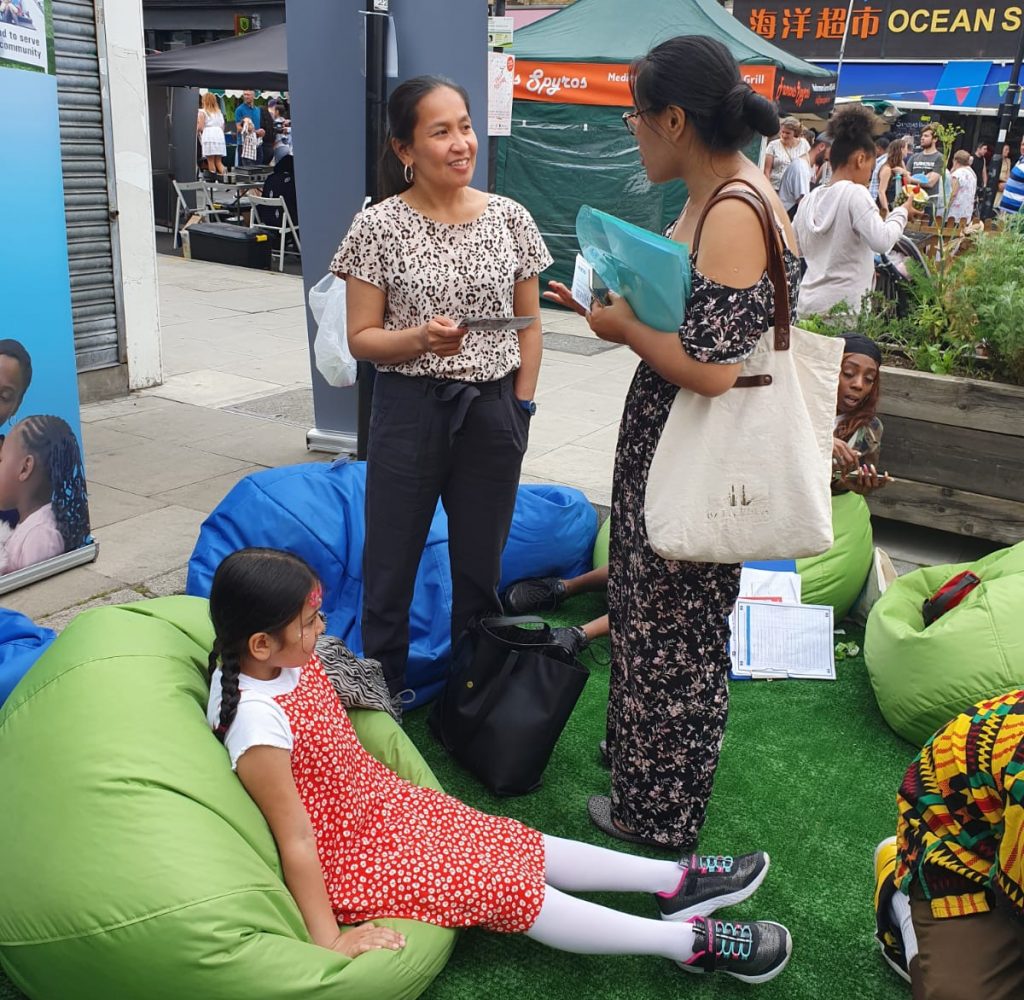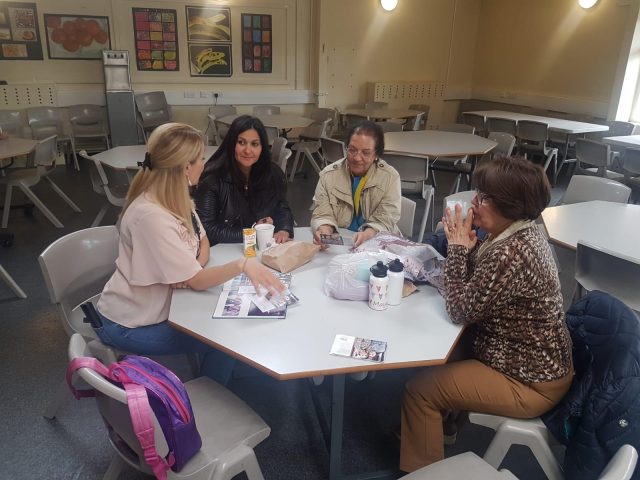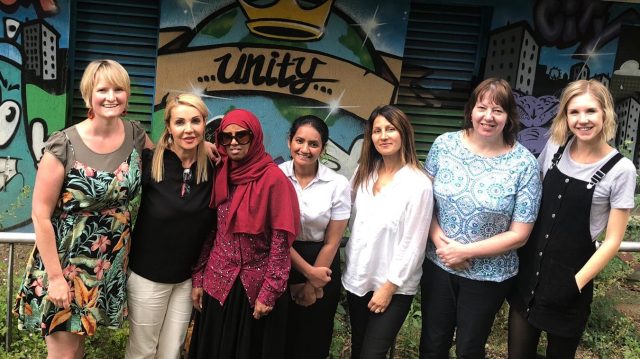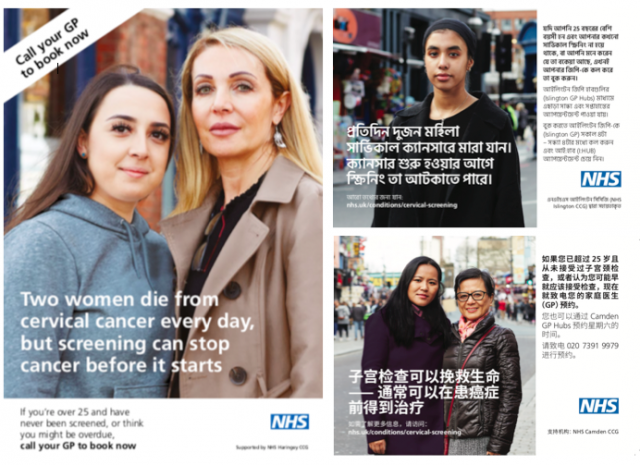Cervical Screening? It’s time to shout about it

How do you persuade women to book an appointment to strip naked below the waist and have a plastic object inserted into their most intimate parts? More often than not, with great difficulty. Anyone who has had a smear test will know that they are, at best, an exercise in stoicism and, at worst, an uncomfortable, maybe even painful, embarrassing experience that puts women off from ever returning.
If you live in the UK, are registered with a GP and are a woman over the age of 25, you will probably have had an invitation to a cervical screening (smear test). You may have ignored invitation after invitation. You may have attended and thought nothing of it.
But what if even the concept of screening is unfamiliar to you? What if within your community you have cultural, religious or personal beliefs that mean taking your clothes off in front of a stranger (even if they are a qualified medical professional) is nothing short of unthinkable? How likely are you to respond to a letter that asks you to do that?

Where to begin?
When we started working with Public Health teams in North Central London on a campaign to raise awareness and increase uptake of cervical screening, we had a lot of unpicking to do. The project team we were working with had specific BAME target audiences (Bengali, Somali, Turkish and Chinese), as well as a responsibility target the wider population.
This is a sensitive topic, we were working in a relatively small area and our target audiences were varied and had individual, specific needs.
What we needed were experts in the field, and this meant women with passion for the cause, who knew their local borough inside out and were active members of their communities.
We reached out to community organisations, faith groups and local charities, told them what we were aiming to do and asked them for help. The response was overwhelmingly positive, and after a lot of hours doing the old-fashioned phone thing and pounding the streets of North Central London, we identified 6 women to be our eyes, ears and messengers across their own patch of the city.
OUR AMBASSADORS
- Mimi, whose interest in health promotion began when she supported her mother with managing her diabetes
- Mekella, motivated to participate after her daughter was diagnosed with stage 1 cervical cancer at the age of 24
- Radhika, a domestic violence survivor who works with a local Asian charity to champion women in her local community.
- Lindsay, a Health and Wellbeing Coordinator in Barnet, who works with ethnically diverse communities
- Bow, a Children’s Centre Manager who saw this as the perfect opportunity to learn more about something that would really help the women she worked with every day
- Sahra, a Somali health interpreter who works with women in hospitals across London

Emily (Claremont), Mekella, Sahra, Radhika, Bow, Lindsay, Ella (Claremont)
Over a period of 12 weeks, these women worked tirelessly with us to educate and encourage their contemporaries to overcome their fears and attend their cervical screening appointments when invited. You name it, they did it – coffee mornings, market stalls, college and university visits, workplace talks, presentations, appearing on local television – they even hit the streets of North Central London to make sure campaign posters were displayed in places like women’s toilet cubicles at local gyms.
We equipped our ambassadors with campaign materials (see examples below), presentation skills, training techniques and conversation starters. They equipped us with insight, experience, knowledge and, most importantly, empathy.

The stark truth is that 2 women in the UK die every day from cervical cancer, yet it is one of the most preventable cancers. Unfortunately the cervix is located in a pretty inaccessible place, which makes avoiding the whole process of screening an easy choice to make.
There’s no one size fits all, no silver bullet and no magic wand that can singlehandedly overcome barriers like fear, embarrassment and inconvenience. Each one of our ambassadors came up with their own special recipe, but were all motivated in equal measure by their determination to empower their peers to face their fears, take care of their own health and help protect themselves from cervical cancer.
—
Questions / comments? Contact emily.davis@claremont.org.uk